A guest panel during the Field to Package food science workshop gave teachers a first-hand understanding of this important Ohio industry. “The goal of our workshops is to connect your classroom with industry,” Susan Sherer, Educationproject.org’s Chief Operating Officer, told the teachers. Four local experts came to speak to the group.
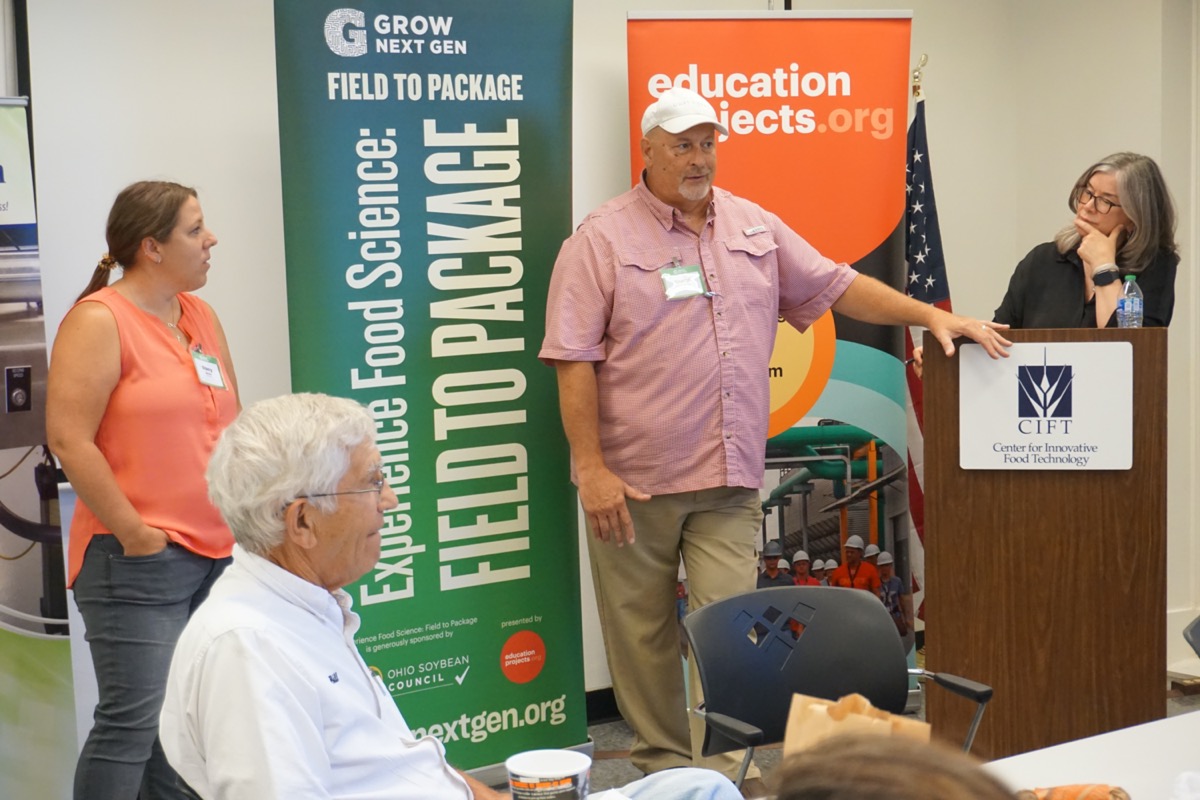
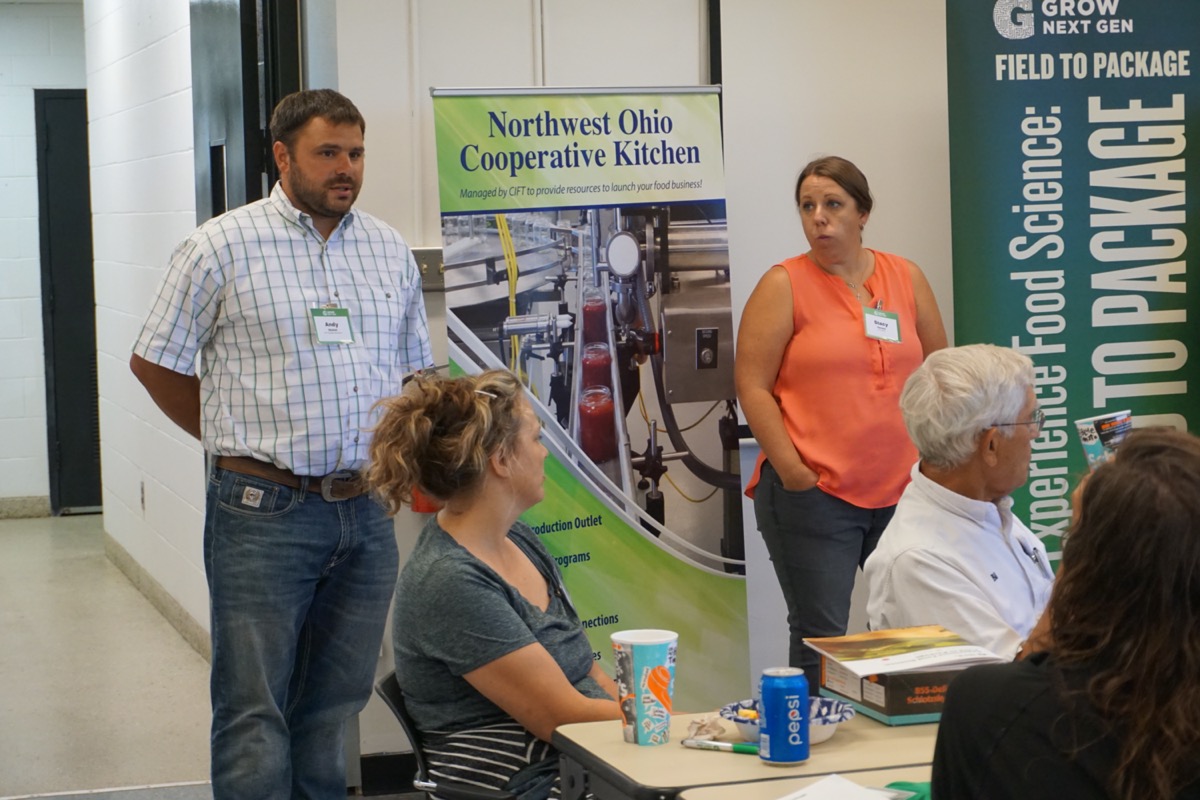
Andy Stickel is a Wood County farmer who serves on the Board of Trustees for the Ohio Soybean Association. “Our tomatoes are sold locally,” Stickel said. “Wheat goes to Fostoria and corn goes to POET Biorefinery. The soybeans we grow are exported all over the world.”
Stacy Vernon is the Food Safety and Operational Specialist with the Center for Innovative Food Technology (CIFT). She’s worked in jobs with various food-related operations, and now she helps people across the state with food safety.
Darryl Leatherman is Manager of Operations, Quality, and Food Safety at Vitakraft Sun SeedVitaKraft Sunseed. The facility produces pet food and treats using ingredients such as wheat, corn, soybeans, oats, and more.
Bill Hirzel of Hirzel Farms and Hirzel Canning Company, a multi-generational company, has 29 growers in different geographical areas. He shared about the challenges of the production process. The planting season starts in January when farmers fill out a form saying what they will plant and when. His facility schedules delivery loads to allow production in a timely and efficient manner.
These jobs are interdependent, as the product moves from the grower through food safety requirements involving the manufacturer. Stickel noted that he has to log spray records which are sent to food safety coordinators.
“If you look at a can of our tomatoes, we can tell you what farm it came from,” Hirzel said. “Why do we monitor that way? Because if someone gets sick, we’d have to throw everything away. If we can tell what farm it comes from, we know exactly what product to get rid of. This helps limit food waste.”
Careers
“Everybody has to eat. We are feeding a growing population, so we need to get people into this industry to help produce that food,” Vernon said.
Leatherman said food science is the biggest area at VitaKraft, with jobs available at all levels. “We are always formulating new foods.” He said students need to understand the entire supply chain, from developing seed, getting crops in the ground, harvesting, getting them to the people that create products, and then out to the consumer. “Find out where you want to be at in that supply chain and focus on being an expert in that area.”
“On any given day, I talk to a dozen people in a variety of farming-related occupations—seed treatments, sales, transportation and logistics, and more. You might not be interested in actually putting the seed in the ground, but it takes many many people before we get to that point, and you’ll never be out of a job!” Stickel said.
“Young people have an image of farming that doesn’t match what is real today. There is so much technology and automation involved. Because of urban sprawl, we are losing farmland. We should not be dependent on imported food. We don’t know what kind of food safety requirements other countries have,” Hirzel noted.
The teachers appreciated hearing from the guests, and the panelists appreciated the opportunity to share with the group. “Much of what we talk about in our industry is America’s lack of understanding about food. Thank you for helping students understand!” Bill Hirzel said.
Visit our website for a cornucopia of food science resources!
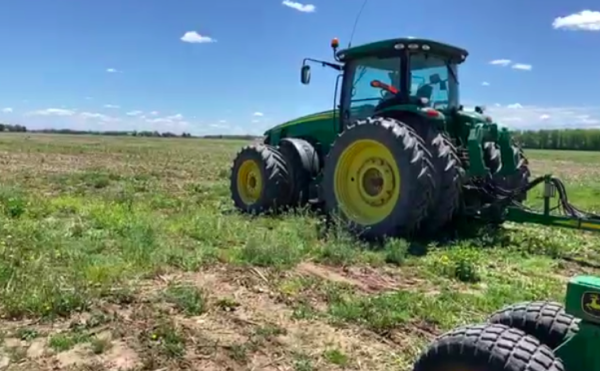
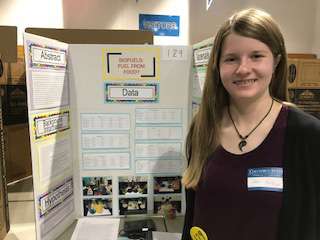
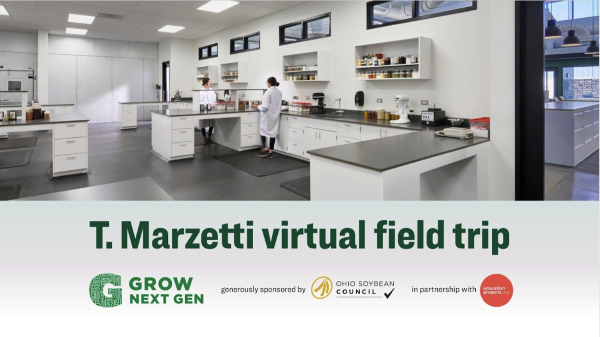
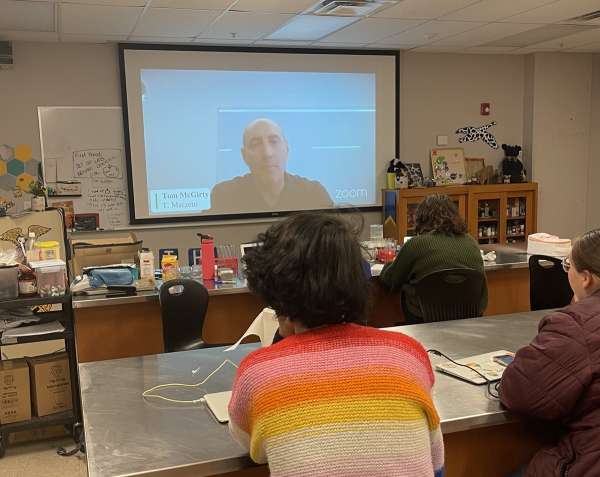
Share this